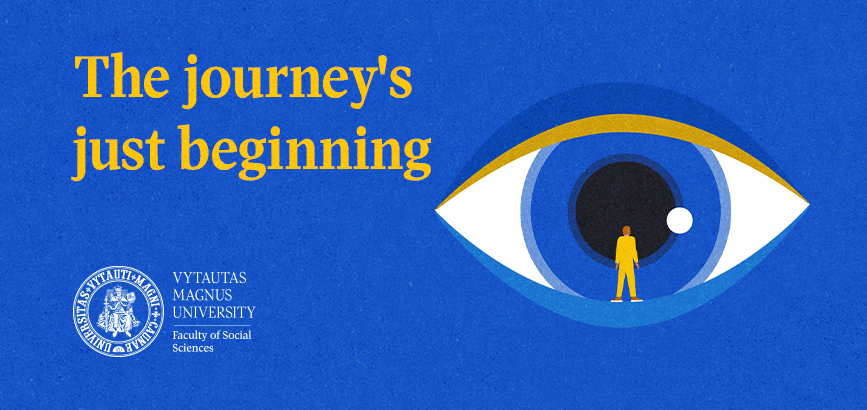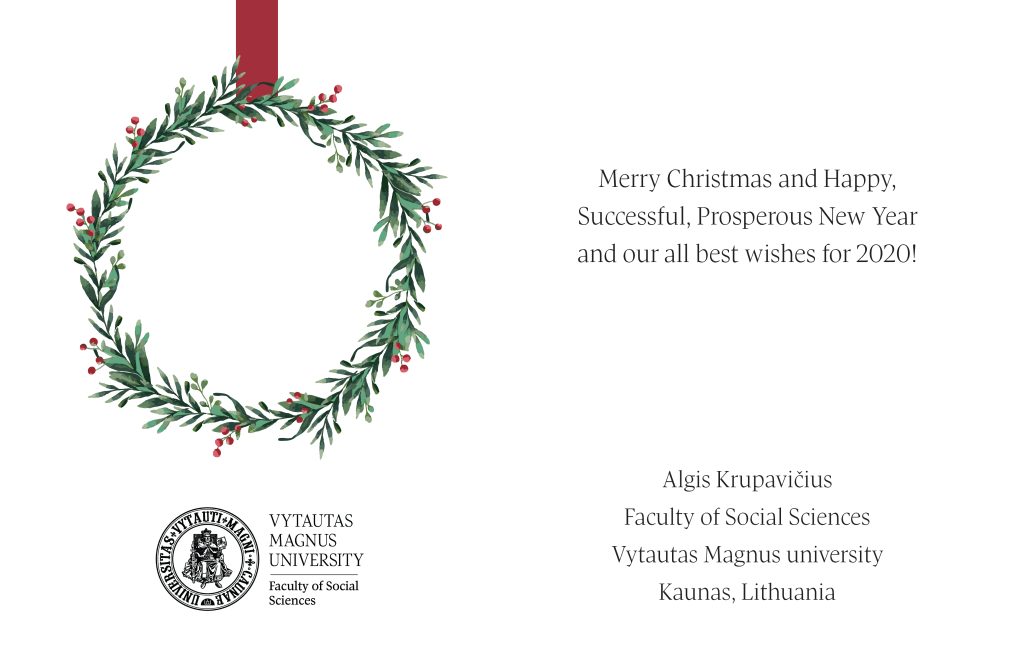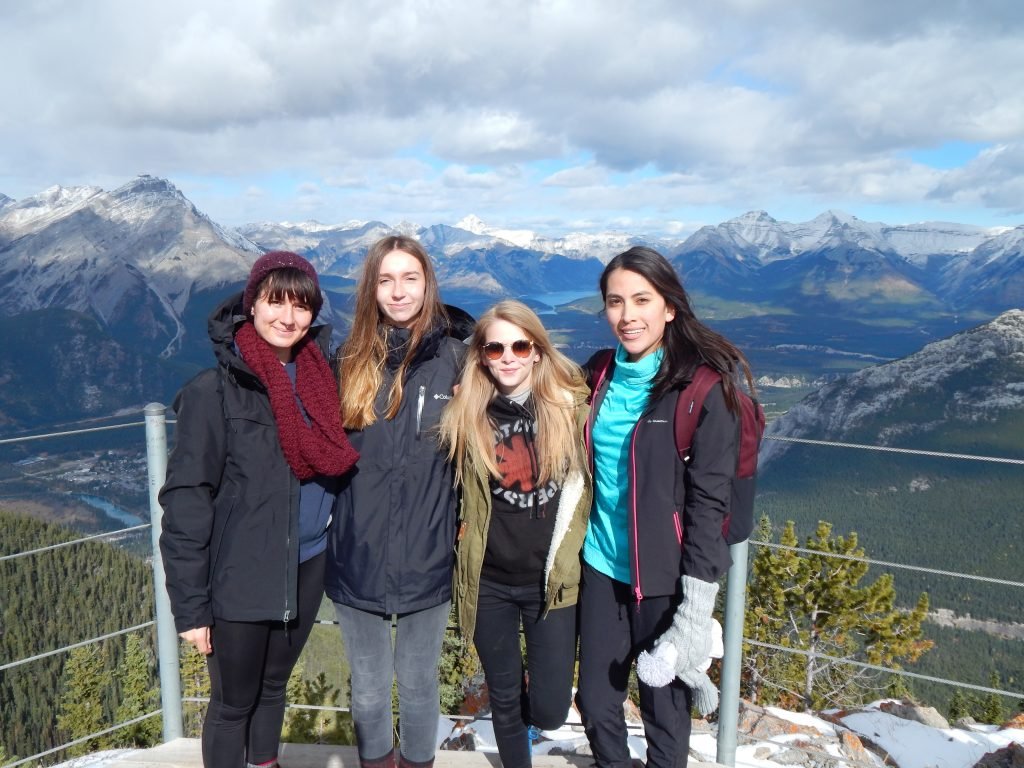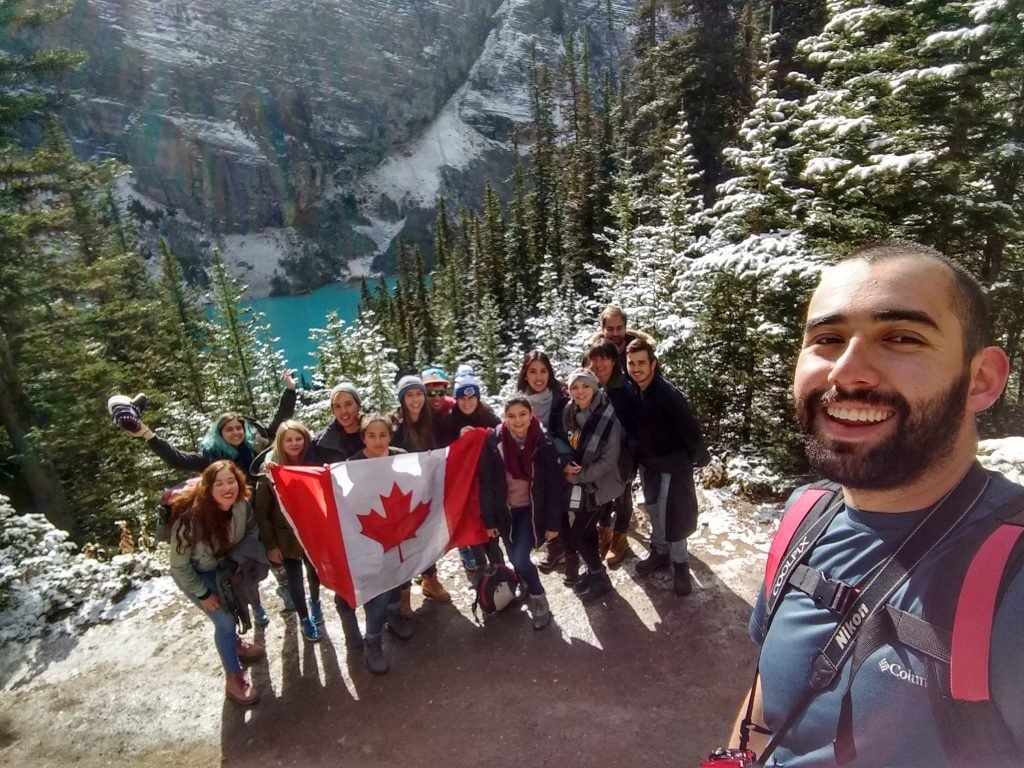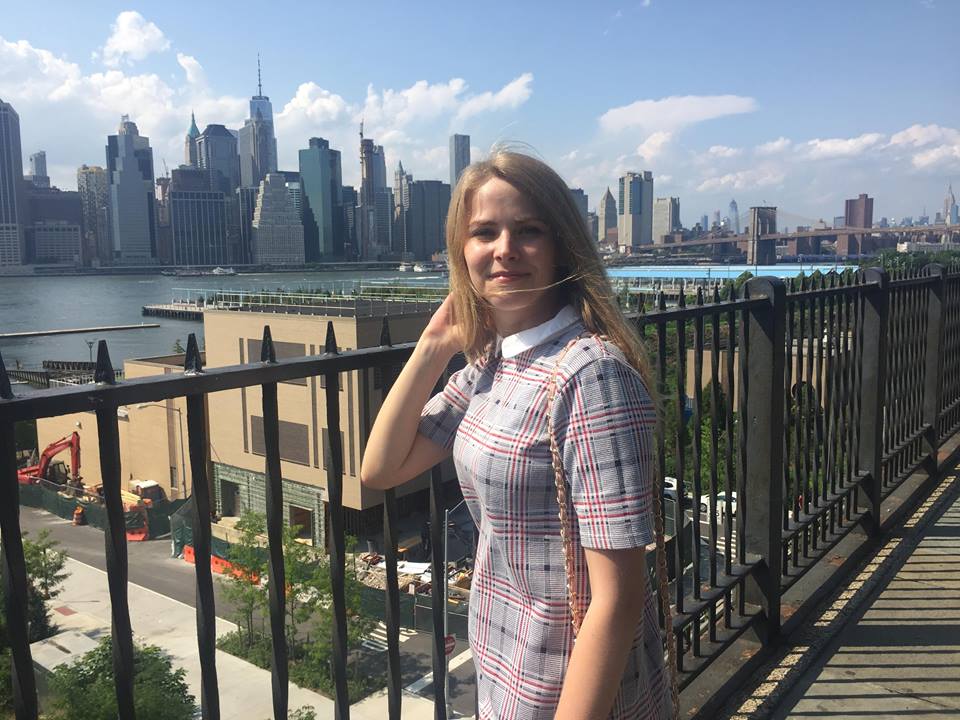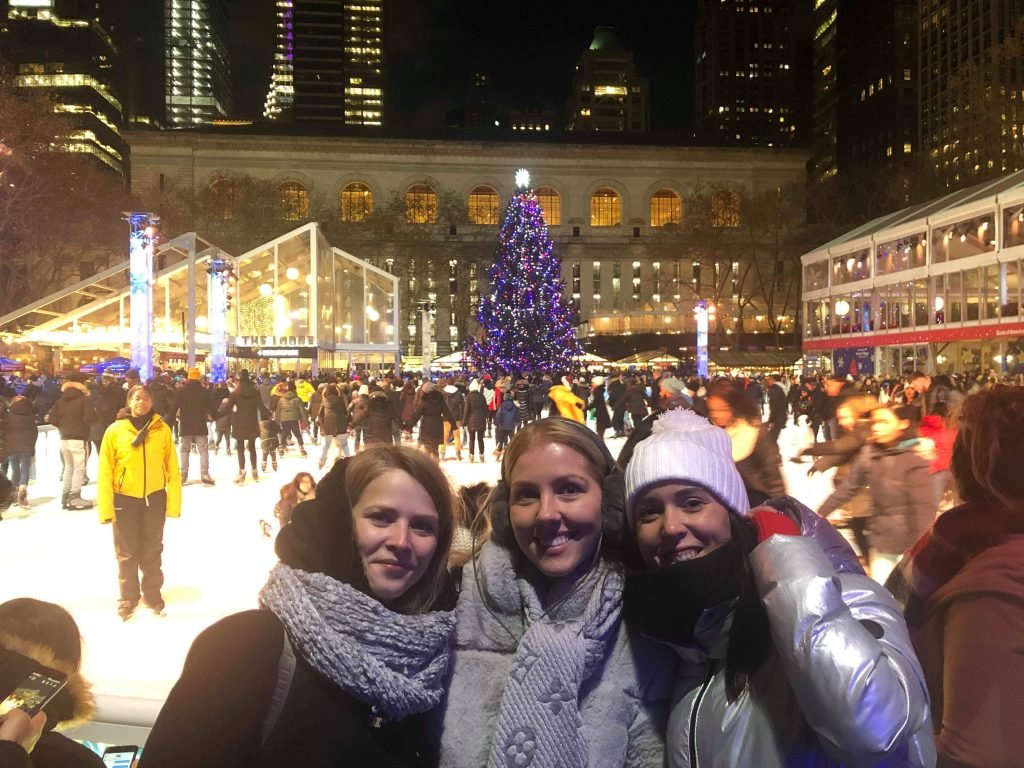Master of Organizational Psychology – Double Degree Diploma with Linnaeus University in Sweden
 Rectors of Vytautas Magnus University and Linnaeus University (LNU) in Sweden signed Double Degree Diploma agreement in Organizational Psychology Master program. Master students of Organizational Psychology at VMU or Work and Organizational Psychology at LNU will have the possibility to receive two Master level diplomas after two years of studies. One diploma will be issued by Vytautas Magnus University and the other – by Linnaeus University. International Double degree diploma will add to the competitiveness of program alumni in international labor market. Also the agreement opens wider possibilities for program teachers to enhance their educational competencies as well as international research cooperation.
Rectors of Vytautas Magnus University and Linnaeus University (LNU) in Sweden signed Double Degree Diploma agreement in Organizational Psychology Master program. Master students of Organizational Psychology at VMU or Work and Organizational Psychology at LNU will have the possibility to receive two Master level diplomas after two years of studies. One diploma will be issued by Vytautas Magnus University and the other – by Linnaeus University. International Double degree diploma will add to the competitiveness of program alumni in international labor market. Also the agreement opens wider possibilities for program teachers to enhance their educational competencies as well as international research cooperation.
Important information about the coronavirus
 As the new coronavirus (COVID-19) continues to spread rapidly in Europe, Vytautas Magnus University encourages the community to stay calm and focused and follow the recommendations of the National Public Health Center under the Ministry of Health (NPHC) and other institutions. Important information is frequently updated.
As the new coronavirus (COVID-19) continues to spread rapidly in Europe, Vytautas Magnus University encourages the community to stay calm and focused and follow the recommendations of the National Public Health Center under the Ministry of Health (NPHC) and other institutions. Important information is frequently updated.
VMU understands that the last month was difficult and stressful for those who came to the university from regions affected by the coronavirus. Our academic community would like to express our support and hopes that your time at VMU will be marked by academic collegiality between teachers and students.
VMU continues to cooperate with the NPHC and takes all measures needed to prevent the spread of the coronavirus: all buildings are equipped with alcohol-based hand sanitizer, and the cleaning of all the premises has been intensified. We also highly recommend for you to maintain good personal hygiene.
Measures that reduce the risk of contracting the coronavirus:
- Washing hands with water and soap (at least 7 times a day) or cleaning hands using an alcohol-based hand rub;
- Covering your nose and mouth with a tissue or bent elbow when coughing or sneezing;
- Avoiding close contact with persons who are coughing, sneezing, or have a fever;
- Ventilating rooms more frequently.
At the moment, VMU recommends refraining from travel to high-risk countries (China, South Korea, and Northern Italy: Lombardy, Veneto, Piedmont and Emilia-Romagna). Those who have already arrived in the aforementioned countries are recommended to follow the official information about the coronavirus and take all preventative measures that are specified by the Ministry of Health of the Republic of Lithuania and international experts.
In accordance with the recommendations of the NPHC, all persons who have recently visited the countries that are suffering from outbreaks of COVID-19 must provide information to the NPHC of Lithuania and fill in an online form. Please remember that if you experience COVID-19 symptoms (fever, cough, difficulty breathing) during the incubation period of 14 days after the trip, it is recommended to immediately call the emergency phone number 112.
Information for students who recently returned from countries with COVID-19 outbreaks
VMU recommends you to stay home and observe your health for the period of 14 days following the last day of the visit in the aforementioned countries. Send an e-mail informing the lecturers and the administration of the faculty in which you are studying and provide a document that confirms your trip.
Information for students who are arriving to reside in VMU dormitories from countries suffering COVID-19 outbreaks
VMU will provide the conditions for these students to reside in separate dormitory rooms and monitor their health and well-being for the incubation period of 14 days. If you are arriving or returning to reside in the dormitories from the countries suffering from the coronavirus outbreak, please inform the dormitory manager about destination from where you are arriving and, if needed, provide a document confirming the trip.
Information for the employees of Vytautas Magnus University (VMU)
Taking into consideration the recommendations by the Ministry of Health and the National Public Health Centre, we inform you that employees who have recently visited countries affected by the coronavirus (COVID-19) and could have been exposed to the risk of contracting it are entitled to stay at home and observe their health for 14 days following the last day of the visit in the affected countries, in order to protect themselves and others. Such an employee must contact his or her immediate superior regarding the completion of the Annex to the Employment Contract for Remote Work (see the attached Terms for a Remote Employment Agreement).
Should you have any questions, please do not hesitate to address them to Ms. Rita Beržinskienė, Chief Specialist at the Employee and Student Safety Unit of the Department of Human Resources (+370 37 327 814).
Greetings from the Dean of the Faculty of Social Sciences Prof. Dr. Algis Krupavičius
VMU psychology clinic is providing psychological services
 We want to remind you that VMU psychology clinic is providing psychological services (e.g. individual psychological counseling, self-help program, etc.) for all VMU community members. More information – psichologijosklinika.vdu.lt/english/
We want to remind you that VMU psychology clinic is providing psychological services (e.g. individual psychological counseling, self-help program, etc.) for all VMU community members. More information – psichologijosklinika.vdu.lt/english/
On the 20th of June 2019 the president of Yale university (USA) professor Peter Salovey was granted Vytautas Magnus University honorary doctorate
 On the 20th of June 2019 the president of Yale university (USA) professor Peter Salovey was granted Vytautas Magnus University honorary doctorate for his research contributions in the field of emotional intelligence and the efforts of Yale university in spreading and supporting the ideas of liberal arts (lot. artes liberales) and science in Vytautas Magnus University. The academic staff of the Department of Psychology at VMU also participated in the solemn meeting of the Senate and had a chance to interact with the honourable guest in an informal setting.
On the 20th of June 2019 the president of Yale university (USA) professor Peter Salovey was granted Vytautas Magnus University honorary doctorate for his research contributions in the field of emotional intelligence and the efforts of Yale university in spreading and supporting the ideas of liberal arts (lot. artes liberales) and science in Vytautas Magnus University. The academic staff of the Department of Psychology at VMU also participated in the solemn meeting of the Senate and had a chance to interact with the honourable guest in an informal setting.
Conference “Social Work With a Family: Towards a Safe Society“
Social work researchers, practitioners, students, politicians and community members are to invite to the international conference “Social work with a family: towards a safe society” which will take place on 3-4 October 2019 in Vytautas Magnus University, Kaunas, Lithuania.
Conference aim is to reveal family life realities in XXI century highlighting possibilities of social work profession to establish a safer society.
Social Work Department at Faculty of Social Sciences of Vytautas Magnus University is organizing international Conference which will focus on advances in social work with families and aims to bring together those, who are interested in this social work area and work in different research, education, social services institutions in Lithuania and abroad.
Main topics of the Conference
- Implementation of children’s rights and child welfare
- Methods of social work with families
- Innovative social work services for a family
- Family counseling
- Inter-generational relationships in a family
- Mental health and social work
- Addiction
- Family and disability
- Violence in a family
- Identity and roles of a social worker in the process of family support
Participants are invited to submit abstracts on research and findings relevant to the topics identified above. You may also propose other topics related to social work with families. Abstracts for proposed oral and paper presentations (550 words maximum) should be forwarded to the Conference organizers.
Key dates
- Deadline for abstracts 30 of June 2019, send by e-mail: eidukeviciute@vdu.lt
- Deadline for registration 15 of September 2019
Accepted papers will be published in the journal “Social work. Experience and methods”.
Conference languages: Lithuanian and English.
Conference admission fee (one day participation is possible):
Till 15 of June 2019 Till 15 of September 2019
100 euro 160 euro
Partners of the Conference: Lithuanian Association of Schools of Social Work and National Association for Social Work with Groups.
Apply now: Additional Competition for Erasmus+ Traineeship
 The Additional competition is open for Erasmus+ student or recent graduate traineeship grants. Application deadline is the 16 of May, 2019.
The Additional competition is open for Erasmus+ student or recent graduate traineeship grants. Application deadline is the 16 of May, 2019.
The placement period is from 2 to 6 months. Traineeship must end before 20-09-2019 (for recent graduates – in a year after graduation).
Note, those students who are graduating studies on June 2019 and wish to take part in Erasmus+ recent graduate traineeship, should participate in this competition.
Selection
All VMU fulltime degree students who have not used more than 10 months of their Erasmus mobility (study / traineeship) period are eligible for the Erasmus grant.
Selection documents
For student traineeship (traineeship during student’s year of studies)
Documents must be submitted online
For recent graduate traineeship (application must be submitted during the last year of studies)
- Application form
- Confirmation by the company or organization (obligatory)
- Recommendation by a faculty member (obligatory)
The priority in the selection is given to
- students whom traineeship is an obligatory part of their study programme;
- students who have never been Erasmus traineeship students before.
Selection criteria
- student’s motivation;
- good knowledge of the language which will be used during the traineeship;
- student’s work, study, traineeship, participation in the international / academic projects, social activities experience in Lithuania and abroad;
- conformability between the chosen traineeship and student’s study programme;
- study results (first year MA students should attach transcript of records of their BA/MA degree to the application form).
The competition results will be sent to every participant via e-mail on 28th May, 2019.
More information: https://www.vdu.lt/en/studies/internships/erasmus-traineeships/
Additional Competition for Traineeship at non-EU Countries
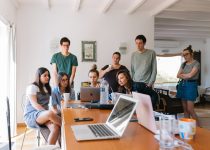 VMU students are invited to participate in competition for traineeship at non-EU countries with Erasmus+ or VMU Mobility scholarship.
VMU students are invited to participate in competition for traineeship at non-EU countries with Erasmus+ or VMU Mobility scholarship.
Students have to submit completed online application form (Application form for traineeship in non-EU/EEE countries) until 19th of May 2019.
Selection criteria:
- traineeship compatibility with Study programme at VMU;
- confirmation from hosting organization for acceptance into traineeship programme;
- motivation;
- results of studies or research during the last two semesters (for VMU Mobility scholarship GPA should be no less than 8.0);
- good knowledge of language in which traineeship will be commenced.
Traineeship period starts no earlier than 2019-06-01 and ends no later than 2019-08-31.
Students will be personally informed via e-mail about the results till 24th of May.
COMPETITION FOR EXCHANGE STUDIES AT non-EU COUNTRIES
Students are invited to participate in a competition for one semester long exchange studies at non-EU countries with Erasmus+ or VMU Mobility scholarship.
Students have to submit completed online application form (Outgoing – Application for Bilateral and Erasmus Study Exchange (non-EU countries)) for Japanese universities until 17th of February, 2019; other universities till 25th of February, 2019.
More information here.
Erasmus+ In Canada: ‘It Was Like an American Movie’
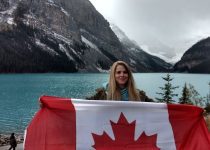 Indrė Kurkulytė, an alum of Vytautas Magnus University, currently lives and works in New York, USA. But this is not the first North American city which she has had the chance to visit. Previously, Indrė visited Regina, Saskatchewan (Canada) on Erasmus+ bilateral exchange, which helped her to not only improve her English but also successfully earn her MA degree. “When you go away from everything that surrounds you, you discover yourself, your attitudes and your opinions, and you question them all in the new environment”, Indrė says, speaking of the value of her international experiences.
Indrė Kurkulytė, an alum of Vytautas Magnus University, currently lives and works in New York, USA. But this is not the first North American city which she has had the chance to visit. Previously, Indrė visited Regina, Saskatchewan (Canada) on Erasmus+ bilateral exchange, which helped her to not only improve her English but also successfully earn her MA degree. “When you go away from everything that surrounds you, you discover yourself, your attitudes and your opinions, and you question them all in the new environment”, Indrė says, speaking of the value of her international experiences.
Why did you choose the studies of Organizational Psychology at VMU?
Psychology has always been my passion. When I completed my BA studies of Psychology, the time came to choose a more specific field. I was not completely certain about which particular area I liked the most, so I decided on Organizational Psychology, because it is one of the widest fields and has lots of application possibilities. I have always seen myself as working in a large organization and surrounded by people.
What did you find interesting while studying for master’s degree?
The thing I liked the most was perhaps the fact that our group was small and the contact with the professors was close. The lecturers had better opportunities to share their experiences. We had enough time for discussions and questions that we found interesting.
Why did you decide to try the Erasmus+ bilateral exchange studies in Canada?
During my bachelor degree studies, I travelled quite a lot with the Erasmus Programme. Likewise, while I was an MA student, I was interested in the possibilities of going abroad. I had heard from other students that it was possible to travel beyond Europe. At first, I looked for information online, then I went to the VMU International Cooperation Department, where I was welcomed very warmly and received information about the travel possibilities. I chose Canada because this country has not only beautiful nature but also English as the official language (with the exception of Quebec). I knew that good command of the English language would be an advantage while looking for a job in the future.
Which university and which city did you choose for your studies? Did you notice any cultural differences with your homeland? In general, were the studies in Canada different from the Lithuanian higher education system?
I lived in the city of Regina and studied in the university named after it. Even though it is the capital of the Saskatchewan Province, this city is comparatively small: it is even smaller than Vilnius or Kaunas. Perhaps the most interesting thing was the student campus, which surrounded the university. Everything was like in an American movie: various sports teams, communities.
Canadians are indeed very nice. What’s also interesting is that the conversations in North America tend to begin with questions like “Where are you from?” or “Where did your ancestors hail from?”. Such questions are much rarer in Lithuania or Europe, while in here, everyone has very diverse family histories.
The format of the studies is also a bit different: for instance, at first I had three different courses. The lectures of statistics were similar to those in Lithuania. One of the courses I chose was “Infant Development”, which consisted only of discussions, where we would sit down in a circle and discuss an article we had read. The last course I chose was “Creativity, Innovations, and Entrepreneurship”. This was an experiential seminar, which means that we were learning through practice. During almost every seminar, we were divided into groups and had to complete a task related to creativity or innovations. I enjoyed learning in various ways and formats. I think that this helps you to better understand which kind of learning you prefer the most and what is the best way for you to perceive and remember information.
What did you like the most during your exchange studies? What kind of experience did you gain and what did you learn from it?
The thing I liked the most was seeing another country and exploring its culture. There is no better way to learn things about another country than to live in it. When you talk with the locals, you begin to understand the subtle details, the jokes, and the challenges that they face. You start to get a sense of the country and its culture. This expands one’s knowledge and horizons massively. I am happy about my studies in Canada and the fact that this is an English-speaking country, as it helped me improve my language skills.
In Canada, you established contact with a lecturer who later provided guidance to you on your final MA thesis. Can you describe what you were working on?
The subject of my thesis was the connections between slacking, organizational commitment, and moral competence. As soon as we arrived to Canada, the international student coordinators advised us to introduce ourselves to the lecturers, to tell them where we come from and that we are international students. As opposed to Europe, where it’s often obvious that you are an Erasmus student, here we looked just like the Canadians themselves. My statistics lecturer was one of the most wonderful teachers I had met. He was not only a great expert of his field but also knew how to present statistics, this subject which seems so unattractive on the surface, in a fun and exciting way. As soon as we introduced ourselves, we started talking about Lithuania and my studies there. Also, as I was working on my MA thesis draft, he kindly agreed to consult me on the statistical methods that would be the best suited for the testing of my hypotheses. Even after I had returned to Lithuania, he still consulted me on statistical issues and helped me notice some interesting insights in my results.
Last autumn, after you had already graduated, you traveled to New York, an American megapolis. What are your current activities here and what motivated you to choose this city?
I came to New York to do a year-long internship. It is sponsored by the Baltic American Freedom Foundation, which covers all of my expenses: the tickets, the accommodation, the visa, the insurance.
Currently I’m doing an internship in a startup. I am a Client Success Manager: someone who is in direct contact with clients and helps them get a better sense of our product, how to use it and get the most value out of it. Every day I learn some new subtleties of working in business and talking to clients in the U.S.
I chose this city because it is so full of life. When you are in New York, you are always in the middle of the action. It is also full of various cultures and ethnicities, so it is very easy to make yourself feel at home.
What was the most difficult and the most interesting in this city?
The most difficult thing is the fact that I will have to leave. The most interesting thing is that this year is probably the time period in which I have learned the most. I keep repeating to everyone that New York is the city where you are reborn again and again. There is such a great abundance of people, talents, and stories. It is simply impossible to be bored. Everything is alive and in motion.
How does international experience contribute to your professional activities and what significance does it have to your personal life?
First of all, at the modern workplace, the English language is no longer just an advantage, it is a necessity. International experience helps you improve your English and feel confident while making a minimal amount of effort. You are forced to speak English, which makes you learn and improve your language skills in a natural way. It is very useful to observe how business and studies are conducted abroad. It provides you with lots of useful insights and enables you to learn new things, to gain experience. I keep meeting new wonderful people who come from all corners of the world. This really makes the borders between countries or cultures disappear. We are all very similar: no matter if we come from Europe, Iran, or Mexico. We share the same human traits, desires, and dreams. To me, each trip to a foreign country is a challenge: leaving everything that is familiar to you and going somewhere else is a wonderful way to discover who you really are. When you go away from everything that surrounds you, you discover yourself, your attitudes and your opinions, and you question them all in the new environment. But sometimes it is the opposite: you can see very clear marks of your culture within yourself and you can fiercely defend the values that have been instilled in your childhood. The time I spend abroad is the time for self-discovery, the time you dedicate to yourself.
What are your future plans? Do you intend to return to Lithuania, or perhaps you still want to continue exploring foreign countries?
After completing my internship, I will return to Lithuania for two years (this is a requirement in the internship contract), so I will spend some time in the homeland. As for what will happen later – time will tell.
What would you say to those who are thinking about Erasmus+ but have some doubts?
I would share my personal experience: the best and the most meaningful time of my studies was abroad, when I traveled to study in the foreign countries. There is no better way to enhance one’s studies.




